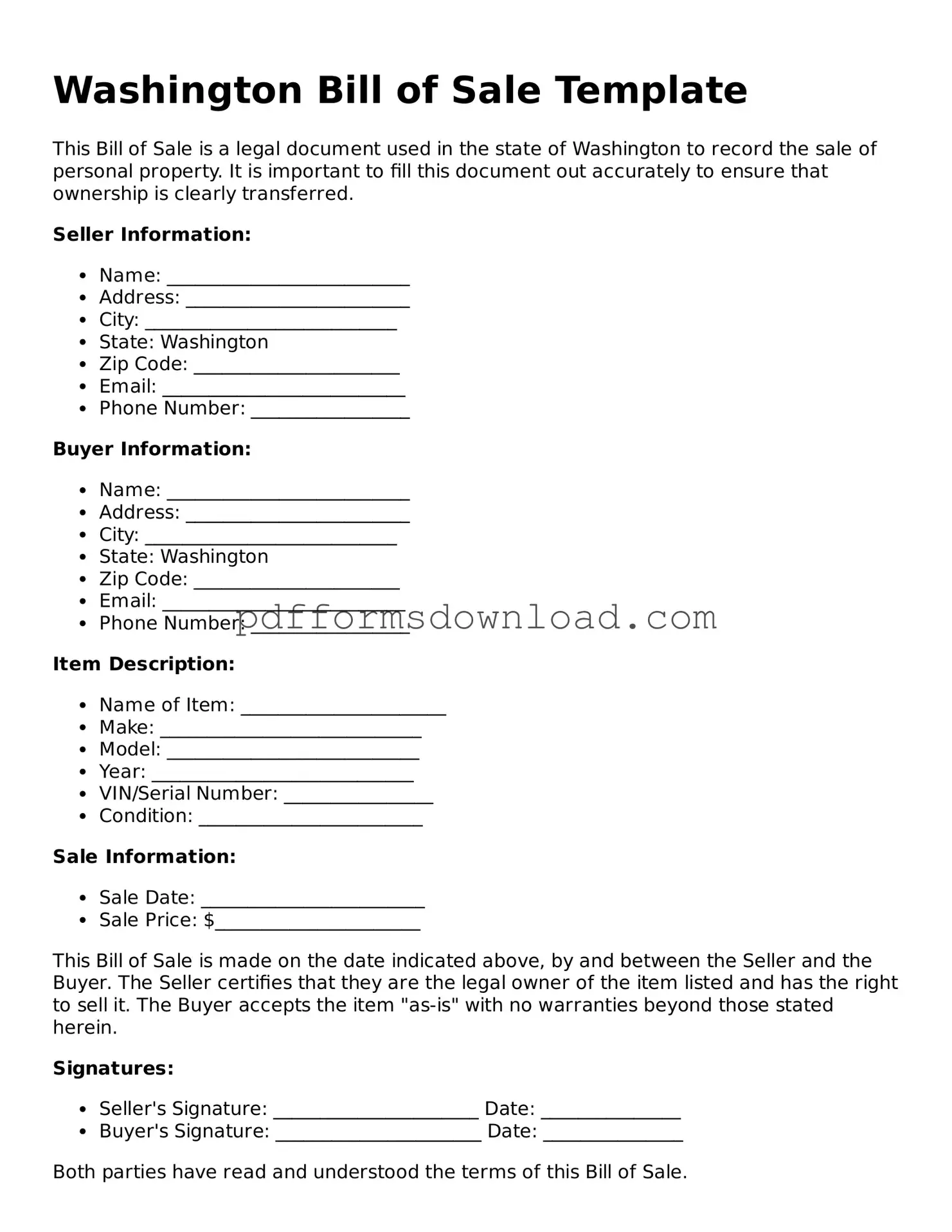What is a Washington Bill of Sale?
A Washington Bill of Sale is a legal document that serves as proof of the transfer of ownership of personal property from one individual to another. This form is particularly important for transactions involving vehicles, boats, and other valuable items. It outlines the details of the sale, including the description of the item, the sale price, and the names and signatures of both the buyer and seller. Having a Bill of Sale can protect both parties by providing a record of the transaction.
Is a Bill of Sale required in Washington State?
While a Bill of Sale is not legally required for every transaction in Washington State, it is highly recommended, especially for high-value items like vehicles. When registering a vehicle with the Department of Licensing, a Bill of Sale may be necessary to prove ownership and facilitate the transfer. Additionally, having a Bill of Sale can help resolve any disputes that may arise regarding the sale.
What information should be included in a Washington Bill of Sale?
A comprehensive Bill of Sale should include several key pieces of information. This includes the full names and addresses of both the buyer and seller, a detailed description of the item being sold (including make, model, year, and VIN for vehicles), the sale price, and the date of the transaction. Both parties should sign and date the document to validate it. Including this information helps ensure clarity and protects both parties involved in the sale.
Can I create my own Bill of Sale, or do I need a specific form?
You can create your own Bill of Sale in Washington State, as long as it includes all the necessary information. However, using a standardized form can simplify the process and ensure that you don’t miss any important details. Many online resources offer templates that you can customize to fit your needs. Whichever route you choose, ensure that the document is clear and comprehensive.
Do I need to have the Bill of Sale notarized?
In Washington State, notarization is not typically required for a Bill of Sale, but it can add an extra layer of security and authenticity to the document. If you are concerned about potential disputes in the future, having the Bill of Sale notarized may be a wise choice. It can serve as further proof that both parties agreed to the terms of the sale.
What should I do with the Bill of Sale after the transaction?
After completing the transaction, both the buyer and seller should keep a copy of the Bill of Sale for their records. The buyer may need it for registration or to prove ownership in the future. The seller should retain it as proof that they no longer own the item. Storing these documents in a safe place is advisable to ensure they remain accessible if needed later.

